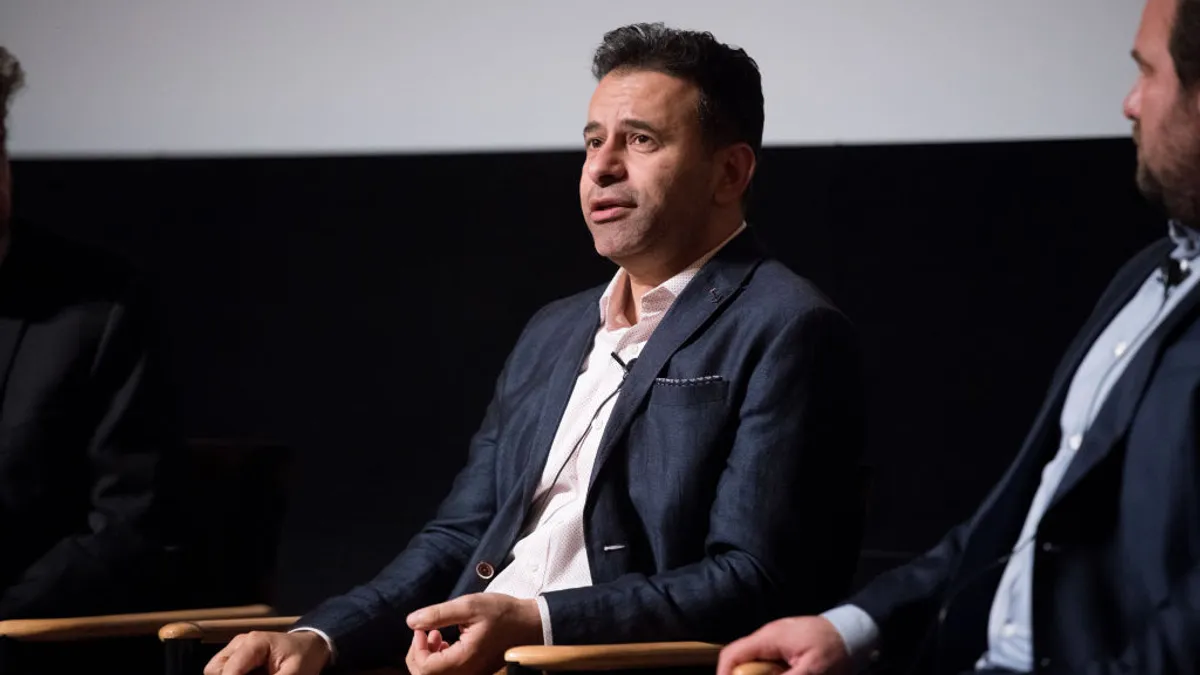The state of Israel is one of the most advanced economies in the southwest Asia region, and is rated 38th out of 185 nations worldwide on the World Bank’s Ease of Doing Business Index. Often described as a start-up nation, Israel hosts more NASDAQ-listed companies per citizen than any other country, according to a Forbes report. All 7.8 million Israelis are insured for healthcare under the National Health Insurance Law through payment of monthly premiums to the National Insurance Institute (Bituach Leumi). “Medical insurance is mandatory for all citizens in Israel," says Yoram Wilamowski, a partner in EY’s Tel-Aviv office. “Out of a total of four medical insurance companies in Israel, two control the majority of the market." The Market Landscape In a recent regional pharmaceutical risk/reward ratings (RRRs) report, Business Monitor International (BMI) ranked Israel third out of the 30 markets surveyed in the Middle East and Africa (MEA), up from sixth a year earlier. Global business intelligence provider GlobalData projects Israel’s pharmaceutical industry will grow to $2.3 billion by 2020 from $1.29 billion in 2005. According to Hagit Nof, senior director clinical operations, country manager Quintiles Israel, as a nation, Israel is an early adaptor in many fields, including IT, communications, and the healthcare arena. “Israel fast tracks the incorporation of new technologies and pharmaceuticals through an annual review process with a defined budget," Ms. Nof says. “As a result, Israel leads in the speed by which new technologies are embraced and available to patients." Mr. Wilamowski concurs that innovation is strong in Israel, noting that the country has the highest concentration of next-generation technologies in biotech, devices, and health-related technologies and applications, such as eHealth and mHealth. “This innovation could easily be integrated and adopted by large pharma companies as an opportunity to increase their line of products or solutions," he says. In addition, Ms. Nof says Israel is known for its highly trained workforce; academic excellence, including four Nobel prizes in Chemistry in the past nine years; its population’s health literacy; and world-renowned key opinion leaders. Israel’s entrepreneurial atmosphere provides significant opportunities for R&D and collaboration, Mr. Wilamowski says. This is helped by strong government R&D incentives, he says. “The Israeli government provides good incentives, both tax and non-tax based, to encourage foreign companies to establish an R&D infrastructure," he says. Interestingly, Israel’s biotech industry boasts a high percentage of female innovators. Women comprise 65% of Israel’s biotech workforce and 13% of top management positions in Tel Aviv Biomed index-listed companies. Aside from its innovative biotech and technology sector, Israel also boasts the largest generic company in the world — Teva. In addition to its significant generics business, Teva has a branded business that focuses on CNS, oncology, pain, respiratory, and women’s health therapeutic areas as well as biologics. In terms of global pharma presence, Mr. Wilamowski says about 16 international pharma companies have an active presence in Israel in the marketing and sales areas, with some also in the development area operating R&D centers, incubators, and collaboration agreements with universities and industries. Ms. Nof says the country has a strong clinical environment, noting that hospitals have invested in proper infrastructure, mainly in dedicated personnel to manage clinical trials administration. “Quintiles participates in studies across many indications, mainly international Phase II and III studies, but also in early-phase trials and late-phase local and global studies," she says. Patient Needs and Demands In 2012, Israel was named the second-most educated country in the world, according to the Organization for Economic Cooperation and Development’s Education at a Glance report. This is reflected in patient knowledge and understanding. “Israeli society is very high-tech oriented," Mr. Wilamowski says. “Israeli patients visiting their doctors are well-aware of the most advanced treatments and medicines and will not hesitate to be actively involved in determining the best course of treatment." According to Ms. Nof there is also social pressure to invest more in health improvements and cutting-edge technologies. “People expect the highest standards in healthcare, thus increasing the demand for high-end devices and state-of-the-art innovative drugs," she says. “The population, though relatively young compared with the OECD countries, is aging, so there is growing demand for health services." Reproductive medicine is a driving force, impacting both clinical care, genetic services, and parental care, Ms. Nof notes. “Public awareness about the need to eat healthy food, take physical exercise, and use sun protection etc. is also improving each year, which contributes to life expectancy in Israel, which has one of the highest in the world," she says. Mr. Wilamowski comments that similar to the United States and Europe, there is growing emphasis on cost-savings, personalized medicine, patient self-management, behavioral changes, remote monitoring, new treatments, and more comprehensive regulatory supervision. “There is a growing trend toward eHealth platforms, supported by tablets and other mobile devices in all the fields and levels of the Israeli medical market," he says. “For example, test results, medical appointments, online prescriptions ordering etc., are very advanced and widely supported and used in Israel." Ms. Nof says the Ministry of Health also invests considerable effort in disease prevention, for example vaccination programs. Most services are free or at minimal cost. Innovative Strength Israel has been described as a world leader in the quality of scientific research institutions. The country has the highest percentage of engineers in the world, as well as the highest number of physicians per capita, and leads the world for medical device patents per capita. According to Business Monitor International (BMI), Israel’s strong R&D capabilities have been underscored with two recent successes for Israeli companies: an FDA approval of Brainsway’s Deep TMS (transcranial magnetic stimulation) medical device and positive Phase II clinical trial results for Neurim Pharmaceuticals’ insomnia treatment. Brainsway’s TMS device is for the treatment of patients suffering from drug-resistant depression. The FDA approval, which certifies the equipment’s efficacy and safety in treating depression, has granted a broad indication for the device. Brainsway is now assessing options to commercialize and distribute the product in the United States and across the globe, including collaborating with established medical equipment manufacturers. “This is exciting news for the world of medicine in general and the field of psychiatric research in particular, which is ever in pursuit of the progress which recent decades have brought other fields of medical research," says Prof. Abraham Zangen, who developed the technology, noted in a statement. Israeli drug manufacturer Neurim Pharmaceuticals reported positive results from a Phase II study evaluating the efficacy and safety of piromelatine (Neu-P11). The product is a novel investigational multimodal sleep medicine developed for the treatment of patients with primary and co-morbid insomnia. Last December, Teva Pharmaceutical Industries and South Korea-based Handok Pharmaceuticals entered into an agreement to establish a business venture in South Korea. The move enables Teva to enter the Korean pharmaceutical market. Under the terms of the agreement, Teva will contribute its global resources and will be responsible for manufacturing and supplying a wide range of medicines. Handok’s primary responsibility lies in sales and marketing, distribution, and regulatory affairs. Teva holds the controlling stake in the new business, with a profit split of 51% to Teva and 49% to Handok. Early Biotech Success Israel boasted two of the earliest commercial biotechnology start-ups worldwide. InterPharm, which was founded in 1978, developed recombinant cytokines for the treatment of viral infections, cancer, and autoimmune diseases (IFN-?, IL-6 and soluble TNF receptors). Bio-Technology General (BTG), which was founded in 1980 by Professor Haim Aviv, in 1988 received marketing authorization for recombinant human growth hormone. The Alacrita report notes that for more than a decade, BTG and InterPharm were the only two substantial players in the biotechnology sector. While many start-ups appeared in the 1990s, helped by government incentives, soft money was targeted at very early-stage projects producing many undercapitalized companies and the investment market turned hostile to biotech. Nevertheless, the Israeli biotechnology scene is actually quite vibrant, the report notes, and there are now a growing number of innovative companies with experienced management and backers. The Israeli biotech sector has particular strengths in biologics, vaccines, and cell therapies. With a high concentration of next-generation technologies, academic excellence, and an entrepreneurial environment, Israel offers a perfect combination for pharma/healthcare innovation. Innovative Israel Creates Pharma Opportunity According to a report from Alacrita, a life- sciences and pharma consulting business, before 1996 Israel was home to 186 life-sciences companies. By 2010 this number was more than 1,100 — 34% being revenue generating — the majority in medtech or healthcare IT. In fact, the medtech industry in Israel is No. 3 worldwide, with many notable highlights, such as: » The Pillcam, the first miniature ingested camera developed by Given Imaging. » The closed-cell stent design, which facilitates blood flow to the heart by Medinol. » The surgical sealant Quixil developed by Omrix and acquired by Ethicon. » InSightec pioneered the MR guided Focused Ultrasound Surgery (MRgFUS) and is now global leader in the segment. » MediGuide, acquired by St Jude Medical, developed the Medical Positioning System, for real-time tracking of sensors mounted on devices for minimally-invasive intra-body navigation. The Alacrita report further notes that Israel also boasts impressive achievements in pharmaceuticals, including: » Azilect, a Parkinson’s disease therapy, was developed by Teva based on research at the Technion in Haifa. » Doxil, a chemotherapy for ovarian cancer, developed at the Hadassah Medical Center and was sold to J&J. » Exelon, a drug for the treatment of Alzheimer’s, originated at the Hebrew University, and was developed and marketed by Novartis. » Michael Sela, who led the group that discovered Copaxone, also led the group that discovered Erbitux. » Rebif, another MS treatment, was developed by the Weizmann Institute in conjunction with Serono’s subsidiary InterPharm. » Teva/Weizmann Institute developed Copaxone, the multiple sclerosis treatment. Promising Israeli companies include: » Andromeda Biotech, which is co-owned by Teva and Israeli investment company Clal, has a Phase III drug with Irun Cohen’s pioneering peptide therapy for Type 1 diabetes. » BioLineRx, which is a clinical-stage, biopharma company based in Jerusalem. » BiondVax, which is developing a Universal Flu Vaccine. » CureTech, which is developing novel, broad-spectrum, immune modulating products for the treatment and control of cancer, with its lead product comprising an anti PD-1 mAb. » Gamida Cell, a Phase III stage cell therapy company, which has partnered its lead product with Teva. » Macrocure is developing a potentially revolutionary cell therapy for hard to heal wounds, which is already on the market in Israel. » Protalix is harnessing its plant cell-based protein expression system for biologics. » Proteologics, which is exploiting the ubiquitin system for the discovery and development of novel therapeutics, with an SAB led by Nobel laureates Hershko and Ciechanover, who discovered the ubiquitin system. » Quark Pharmaceuticals, which is one of the pioneers in RNAi therapies. » Vaxil Bio Therapeutics, which is developing T-cell vaccines for tuberculosis and cancer. » Pluristem is heading toward multinational Phase II/III trials with its proprietary PLX stem cell technology. » VBL Therapeutics, which raised more than $100 million, has Phase II candidate for treating atherosclerosis. The report attributes much of Israel’s success to Teva, which has had a transformational history, starting out as a local distributor in 1901 through to medicines formulator and manufacturer, into the largest global generics company and now ranking among the 10 top pharma companies worldwide. In addition to grooming local talent, the Alacrita report notes that Teva has also brought local biotechs under its umbrella to feed its R&D pipeline, and has been especially active in biologics and cell therapies. Sidebars: Israel Home to Science Israel at a Glance “In terms by which new technologies are embraced and available to patients, Israel is one of the leading countries. " hagit nof / Quintiles Israel at a Glance Total Population: 7,418,000 Gross national income per capita (PPP international $): $27,660 Life expectancy at birth m/f (years): 80/84 Probability of dying under the age of 5 (per 1,000 live births): 4 Probability of dying between the ages of 15 and 60 years male/female (per 1,000 population): 75/44 Total expenditure on health per capita (Intl $, 2010): 2,186 Total expenditure on health as % of GDP (2010): 7.6
An article from











